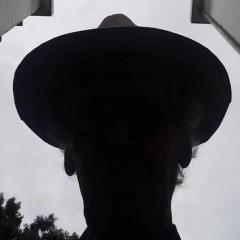I'm going to agree with your local critic.
Some, but certainly not all restaurants will give you a glass of tea (or hot water) on arrival, but it is almost never served with food. I often eat in Chinese family homes. They never offer tea with meals. Other times, yes.
I've eaten in five restaurants in China in the last 24 hours and none offered tea, although to be fair, we didn't ask for any. It wouldn't occur to us to want it.
Yes, dim sum is different. Dim sum refers only the side dishes that are served at morning tea, and the tea comes first. The event is called 饮茶/飲茶 (Mand: yǐn chá; Cant: yam2 cha4) meaning 'drink tea' . No one ever says "Let's go for dim sum." They go for 'yum cha'.
But dim sum or yum cha is mainly a Cantonese thing. Not Sichuan cuisine. Tea houses are very popular there, but are different from restaurants. More like temples to the divinity of tea. Serious stuff. As your critic also says, Sichuan cuisine would overpower any tea. Sacrilege!
However the relatively bland tastes of Cantonese food works well with tea, but as a complement to the tea, rather than the other way round.




